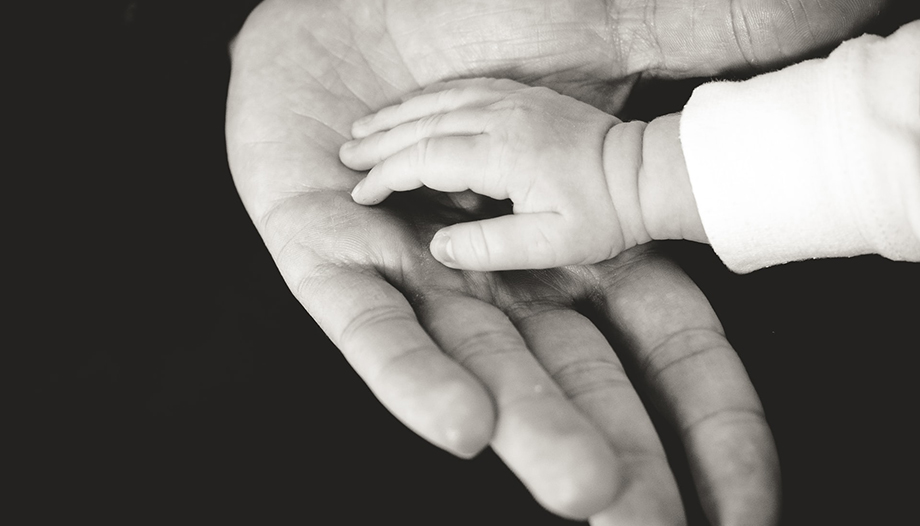She is a nurse who for half her life was unable to care for those who needed it. A degenerative condition consumed her for forty years, until she could barely walk; for the last 14 she needed morphine, daily, and was totally dependent on machines and appliances.
"I walk in the midst of you, I see your suffering, that of your sick brothers and sisters, give me everything". Three days after hearing it in Lourdes, this other Bernadette finally relaxed and a warmth came over her. "Take off your braces": for Sr. Bernadette Moriau, who still lives among us, had been cured.
He was sick, but what he really needed was a conversion. And God graciously granted him the gift of a clean faith.
She and he are examples that today, in every corner of the world, God acts and saves us from our miseries. And, sometimes, he does it in a miraculous way.
The life of the one who should despair is inexplicable in the eyes of the one who lives believing he has everything. The blind man who cannot even listen, who does not recognize the evil around him (or within himself), who asks bitingly: "Do we need miracles? What miracles? Who still believes in them today? The stubborn one who is unable to see, recognize and love.
And yet he who has ceased to have faith in himself can believe in the unbelievable, for he recognizes that he is so limited that he embraces nothing; he who has no choice but to abandon himself is amazed and astonished. This faith has existed since man was able to transcend, back in the beginning of time, although only Christianity has been able to explain it.
All miracles (healings, completely inexplicable or not, those that overcome the laws of physics and nature, spectacular or those that go unnoticed, instant conversions) have a meaning that goes beyond the event itself and is twofold: they are a call to faith and they seek to free us from the slavery of sin. A miracle, like the truth, sets us free: from pride, from unbelief, from sickness, from death, but, above all, from evil.
A miracle is the most personal encounter that God has prepared for us. It supposes absolute renunciation, total abandonment. It is the consequence of the purest faith, of the one who listens and responds to a call on our behalf. That kind of faith is a lighthouse in the middle of the night, illuminating a life that in the darkest hour can only be rescued by Someone.
God himself.
God who becomes man: a mystery that will escape our understanding until the end of time and that split our history in two.
God who redeems us: a Savior who, in the words of St. Peter at the first Pentecost, is so in our eyes because of the "miracles, wonders and signs" he performed (Acts 2:22).
God who dies and rises again: a sacrament of love that makes Jesus Christ his own witness to all humanity. Miracles that shorten the path between God and mankind. Like Sister Bernadette, who at the moment of her healing felt the "living presence of Christ".
Since the beginning of time there have been miracles... and today, and tomorrow, there will continue to be, all over the world. They are needed and they are granted if that is what is convenient for us. The Church, however, to avoid being accused of inventing supernatural events, is extremely cautious about recognizing them officially. Think of Lourdes, where we might believe that the hierarchy boasts of miracles that fall out of the hands of thousands... In reality, the International Medical Office - which has recorded and investigated thousands of claims of healing reported by the sick - has only recognized as miraculous 1% of the cases.
When Sister Bernadette felt that "strong heat in her body and the desire to get up" in 2008, she was not the first, far from it. Sister Luigina Traverso felt something very similar with a very similar illness. The pattern of a healing that is "sudden, instantaneous, complete, lasting and cannot be explained by current scientific knowledge" makes it sensitive and transcendent.
That is why science revolts and claims its dominion, because it cannot see beyond or the inexplicable. And not even when it asks for its space to 'prove' what happened can it silence the clamor that comes from a healed heart.
Not even faith in science allows unbelievers to accept the evidence that reality cannot always be explained, and that it is not a matter of giving up but of not turning away from faith in Love. St. Augustine, as sinful at the beginning as he was a saint for the rest of his life, said: "I call a miracle that which, being arduous and unusual, seems to exceed the possible hopes and the capacity of the beholder".
Those who desperately need a miracle, and receive it, are the last to want to corroborate that it is a case 'recognizable' by science. They needed it, they have lived it, they enjoy it. Neither the Church nor Science could tarnish it. Because "the miracle is the visible trace of a change operated in the heart of man. Miracle and conversion, miracle and salvation, miracle and holiness, are inseparable" (K. Sokolowski).
Nothing is impossible for God, as Sr. Bernadette Moriau proved in her own life: "The Gospel is not two thousand years old, the Gospel is still today, Jesus can still heal today. And the key to the Good News - yesterday, today, always - is that Christ himself manifests himself as pure Love. And before Him, Science yields; before Mercy, doubts are overcome. God cannot but be moved by naked and unconditional Faith (Mk 1:40-42). And so it is a matter of living the faith that precedes the miracle and the Love from which it proceeds.







